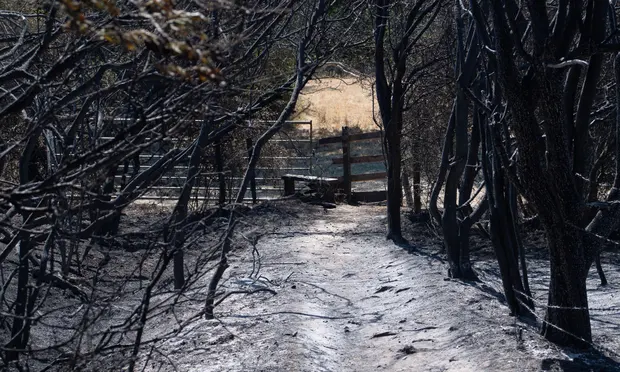Figures in the UK have shown that while there were more than 800 fires recorded on July 19, 2022, which was the hottest day of the year in the country when the mercury rose above 40C for the first time, the country also faced four times more wildfires this year’s summer than in the same period in 2021.
Extreme weather caused by climate breakdown after an extremely hot and dry June, July and August meant some forces tackled more than 50 wildfires a day during the heatwaves, a situation that Fire Chiefs described as increasingly challenging to their staff.
Drought was also declared in many areas and temperatures reach a record-breaking 40C.
According to data obtained by PA Media under freedom of information requests, fire services recorded at least 24,316 wildfires in England from June to August, a figure that is almost four times the 6,213 in the equivalent period in 2021, and about two and a half times the 9,369 for June to August 2020.
Read also: France tipped for warmest New Year’s Eve in history
On the hottest day of the year, 19 July, more than 800 wildfires were recorded as temperatures rose above 40C in the UK for the first time, peaking at 40.3C at Coningsby in Lincolnshire. There were also many fires in mid-August, with 600 recorded each day from 11 to 14 August as temperatures reached the mid-30s.
The hot weather in 2022 meant that it was likely to be the warmest year on record for the UK, the Met Office said on Wednesday. Meteorologists said this was likely to be a consequence of climate breakdown.
London suffered a higher-than-average number of wildfires, with firefighters putting out 2,639 from June to August, nearly five times the number for summer 2021 and almost twice the figure for 2020.
A London Fire Brigade spokesperson said: “Firefighters across London worked in very difficult conditions to protect Londoners during the intense heatwave this summer and their heroic actions meant no lives were lost.
“The grass fires are an example of how we are increasingly being challenged by new extremes of weather as our climate changes. We must adapt to this change and are constantly looking at developing our equipment and procedures to meet all the new challenges that we face.”
The northeast of England also faced a large number of wildfires. Cleveland Fire Brigade recorded 1,134 this summer, more than six times the number in 2021 and 2020.
Robin Turnbull, the area manager for prevention, protection and engagement, said record-breaking temperatures “significantly increased the chance of fires starting and spreading, particularly in grassed and woodland areas”.
“As a result, these had the potential to be incredibly dangerous, causing huge disruption to local communities,” he said. “Those fires that were set deliberately also took up the precious time of firefighters and control room staff who may have been needed for other serious incidents.”
Hampshire also recorded a sharp jump in incidents this summer, with 958 wildfires, five times the number for 2021 and nearly double the figure from 2020.
Story was adapted from the Guardian.
